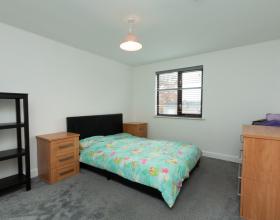Health and Safety
The following requirements are the responsibility of the owner (Landlord). Where we are managing the property they are also our responsibility. Therefore where we are managing we will ensure compliance, any costs of which will be the responsibility of the landlord.
Gas
Annual safety check: Under the Gas Safety (Installation and Use) Regulations 1998 all gas appliances and flues in rented accommodation must be checked for safety within 12 months of being installed, and thereafter at least every 12 months by a competent engineer (e.g. a GAS SAFE registered gas installer).
Maintenance: There is a duty to ensure that all gas appliances, flues and associated pipework are maintained in a safe condition at all times.
Records: Full records must be kept for at least 2 years of the inspections of each appliance and flue, of any defects found and of any remedial action taken.
Copies to tenants: A copy of the safety certificate issued by the engineer must be given to each new tenant before their tenancy commences, or to each existing tenant within 28 days of the check being carried out.
Electrical
There are several regulations relating to electrical installations, equipment and appliance safety, and these affect landlords and their agents in that they are 'supplying in the course of business'. They include the Electrical Equipment (Safety) Regulations 1994, the Plugs and Sockets Regulations 1994, the 2005 Building Regulation - 'Part P, and British Standard BS1363 relating to plugs and sockets. Although with tenanted property there is currently no legal requirement for an electrical safety certificate (except in the case of all HMOs) it is now widely accepted in the letting industry that the only safe way to ensure safety, and to avoid the risk of being accused of neglecting your 'duty of care', or even of manslaughter is to arrange such an inspection and certificate.
Fire
The Furniture and Furnishings (Fire) (Safety) Regulations 1988 (amended 1989 & 1993) provide that specified items supplied in the course of letting property must meet minimum fire resistance standards. The regulations apply to all upholstered furniture, beds, headboards and mattresses, sofa-beds, futons and other convertibles, nursery furniture, garden furniture suitable for use in a dwelling, scatter cushions, pillows and non-original covers for furniture. They do not apply to antique furniture or furniture made before 1950, bedcovers including duvets, loose covers for mattresses, pillowcases, curtains, carpets or sleeping bags. Items which comply will have a suitable permanent label attached. Non-compliant items must be removed before a tenancy commences.
Smoke Alarms
All properties built since June 1992 must have been fitted with mains powered smoke detector alarms from new and from the 1st of October 2015 all tenanted properties must have mains powered or long-life battery operated smoke alarms installed on each floor.
EPC (Energy Performance Certificate)
How and when should the EPC be supplied? The Energy Performance Certificate and recommendation report must be made available free of charge by the landlord to a prospective tenant at the earliest opportunity and before a let is agreed.
Who will visit the properties? A qualified and accredited Domestic Energy Assessors.
What do I do with a large portfolio of rental properties? You need to ensure that all of them have an EPC ready for 1st October 2008, we advise getting the wheels in motion ASAP to avoid delays.
Who will visit the properties? A qualified and accredited Domestic Energy Assessors.
How long is the EPC valid? 10 years for rental properties Energy Performance Certificates (EPC) are being introduced to help improve the energy efficiency of buildings.
Is your property a House in Multiple Occupation (HMO)?
A house in multiple occupation (HMO) can be any building or part of a building used for living accommodation by more than two people who are not part of the same family, where they occupy the property as their only or main residence, where they share one or more basic amenities and they pay rent for their accommodation. The full definition of a HMO is contained in section 254-260 of the Housing Act 2004.
In general terms, a house in multiple occupation (HMO) can be any one of the following:
- A shared house lived in by people who belong to more than one family sharing one or more basic amenities, such as a toilet, personal washing facilities and cooking facilities.
- A house in bedsits lived in by people who belong to more than one family sharing one or more basic amenities.
- An individual flat lived in by people who belong to more than one family sharing one or more basic amenities.
- To be of the same family, the occupants must be married to each other, live together as a husband and wife, live together in a same sex relationship, or be related to each other, such as a parent, grandparent, child, grandchild, brother, sister, uncle, aunt, nephew, niece or cousin.
Do you need planning permission?
As from July 2012 the introduction of Article 4 Direction came into force. This means that all new Houses of Multiple Occupation will be subject to planning control in some areas. For more information please visit the planning in your area.
The Housing Health and Safety Rating System (HHSRS)
The HHSRS provides an analysis of how hazardous a property is through assessment of 29 potential hazards found in housing. Landlords have to maintain their properties to provide a safe and healthy environment. The HHSRS is enforced by local authorities.
The Tenancy Deposit Scheme
From 6 April 2007, all deposits taken by landlords and letting agents under Assured Shorthold Tenancies (ASTs) in England and Wales must be protected by a tenancy deposit protection scheme. Landlords and letting agents must not take a deposit unless it is dealt with under a tenancy deposit scheme. To avoid any disputes going to court, each scheme will be supported by an alternative dispute resolution service (ADR). Landlords and letting agents will be able to choose between two types of scheme; a single custodial scheme and two insurance-based schemes. Learn more here: http://www.direct.gov.uk/en/TenancyDeposit/index.htm.
The Disability Discrimination Act 2005
The DDA 2005 addresses the limitations of current legislation by extending disabled people's rights in respect of premises that are let or to be let, and common hold premises. Landlords and managers of let premises and premises that are to let will be required to make reasonable adjustments for disabled people. Under the new duties, provided certain conditions are met (for example, that a request has been made), landlords and managers of premises which are to let, or of premises which have already been let, must make reasonable adjustments, and a failure to do so will be unlawful unless it can be justified under the Act. Landlords will only have to make reasonable adjustments. And they will not have to remove or alter physical features of the premises.














